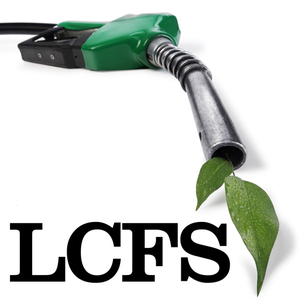Clean Fuels: CARB proposal will raise fuel prices, thwart decarbonization progress

August 28, 2024
BY Clean Fuels Alliance America
A proposed cap on soy- and canola-based biodiesel and renewable diesel could raise prices of fuel and goods for California consumers and set back decarbonization efforts by years, said Clean Fuels Alliance America and the California Advanced Biofuels Alliance (CABA) in comments submitted to the California Air Resources Board (CARB).
The recently proposed amendments to the Low Carbon Fuel Standard (LCFS) would put a 20% cap on credits for vegetable-oil-based fuel, without sufficient scientific evidence to support such limitations.
Advertisement
Advertisement
In the comments, Clean Fuels Director of State Regulatory Affairs Cory-Ann Wind stated, “Substantially constraining the lowest cost feedstocks for these petroleum diesel replacements can raise the price of diesel fuel, increasing consumer prices of both the fuel and goods transported by trucking.”
Biodiesel and renewable diesel have displaced nearly 75% of all diesel sold in the state and are responsible for 45% of California’s progress under the LCFS so far. Capping the use of vegetable oils to power trucks and other heavy-duty vehicles will slow down California’s effort to decarbonize them.
Advertisement
Advertisement
Clean Fuels, CABA and other stakeholders are urging CARB to reconsider the proposed caps on vegetable oils in the LCFS in part because it will delay decarbonization and increase the cost to comply with California’s lofty greenhouse gas reduction goals. For every 5 years of delay, 13 times more emissions reductions will be required to have the same climate impact.
“Instead of penalizing fuels, CARB should be focusing on improving the robustness of the models and encouraging sustainable practices through targeted incentives that might provide a more effective balance between environmental protection, food security, and the promotion of renewable energy,” Wind said.
Related Stories
At the University of Missouri, plant biochemist Jay Thelen is using arabidopsis as a powerful model to explore ways to boost oil production — an important step toward creating more sustainable, plant-based energy sources.
Iowa farmers have a new market opportunity for their 2025 soybean crop. Landus is expanding its Clean Fuel Regulation initiative, made possible by recent policy changes expected to increase Canada's demand for liquid biofuel.
Klobuchar, Moran introduce bipartisan legislation to support biorefineries, renewable chemicals, and biomanufacturing
Sens. Amy Klobuchar, D-Minn., and Jerry Moran, R-Kan., on July 31 announced the introduction of the Ag BIO Act. The legislation aims to update the USDA’s loan guarantee program to better support biorefining projects.
U.S. Secretary of Agriculture Brooke L. Rollins on Aug. 1 announced the opening of a 30-day public comment period for stakeholders to provide feedback on the department’s reorganization plan, as outlined in the memorandum released July 24.
Sen. Chuck Grassley, R-Iowa, on July 31 pressed Derek Theurer, President Donald Trump’s nominee to serve as under secretary of the U.S. Department of Treasury, on the expected timeline for the release of 45Z guidance.
Upcoming Events










